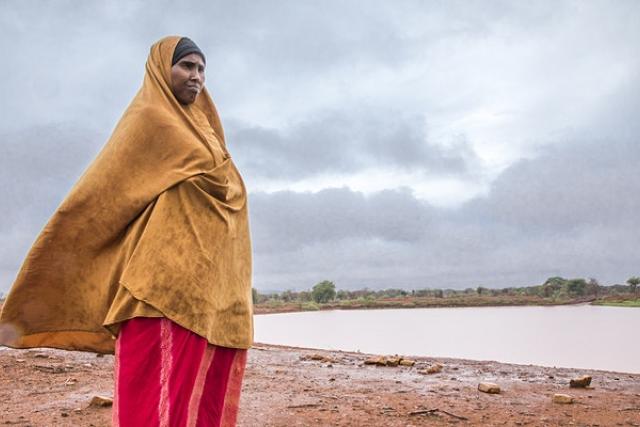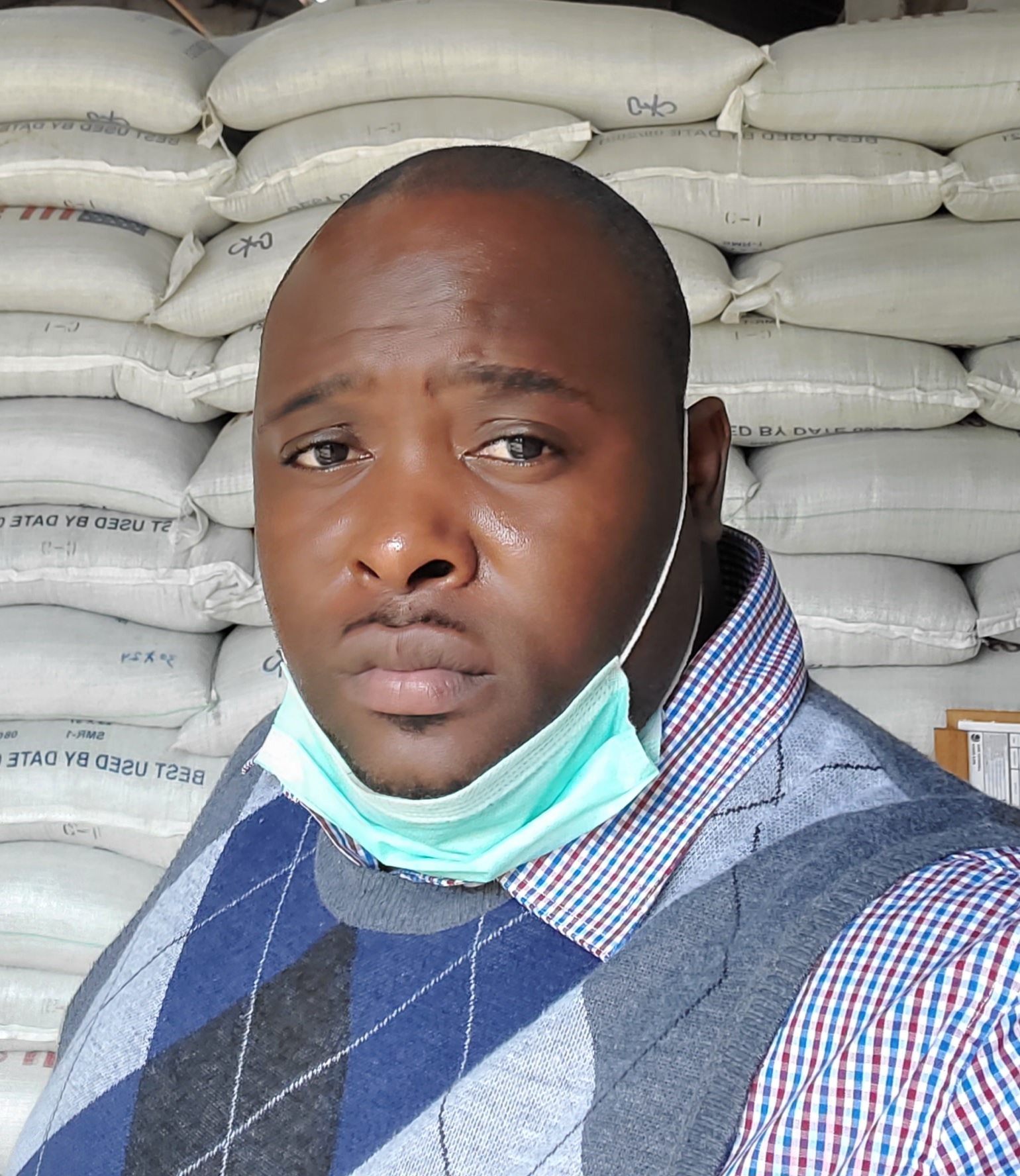Insights into Implementing Recurrent Monitoring Surveys in USAID-funded Activities

Recording in English Presentation in English
Recording in French Presentation in French
About | En français, cliquez ici
This event organized by REAL was a discussion on the practical aspects of planning and implementing a recurrent monitoring survey (RMS), featuring panelists from Mercy Corps and TANGO International (see below for panelist bios) with first-hand experience of completing an RMS. The panelists discussed considerations for setting up an RMS and lessons learned from using the findings for management decisions and learning, drawing on Mercy Corps’ experience implementing an RMS for the Food Security Program in DRC and TANGO International’s experience implementing an RMS for the Resilience in the Sahel Enhanced (RISE) initiative in Niger and Burkina Faso.
Measuring resilience requires tools that can capture how individuals, households, and communities draw on resources and employ strategies to respond to shocks and stresses, and how this affects their wellbeing trajectories in the short and long term. A key resilience measurement tool for capturing these dynamics is the recurrent monitoring survey.
Recurrent Monitoring Surveys have the ability to collect near to real-time data on resilience dynamics as they are unfolding, which helps teams understand how project participants are coping and responding in the face of these disturbances. RMS data gives program teams the necessary information to make adjustments in program implementation and facilitates internal learning.
This event was primarily for practitioners working on resilience programs who are interested in setting up a recurrent monitoring system.
The event was held in English with simultaneous interpretation in French.
Resources
Resilience Measurement Practical Guidance Note Series 6: Recurrent Monitoring Surveys- English
Resilience Measurement Practical Guidance Note Series 6: Recurrent Monitoring Surveys- French
Aperçu de la mise en œuvre des enquêtes de suivi récurrentes dans les activités financées par l'USAID
Rejoignez REAL pour une discussion sur les aspects pratiques de la planification et de la mise en œuvre d'un RMS, avec Ernest Dube (Mercy Corps République démocratique du Congo), Arno Bratz (Mercy Corps Ouganda) et Tim Frankenberger (TANGO International). Les panélistes discuteront des considérations relatives à la mise en place d'un RMS et des leçons tirées de l'utilisation des RMS pour les décisions de gestion et l'apprentissage, en s'appuyant sur l'expérience de Mercy Corps dans la mise en œuvre d'un RMS pour le programme de sécurité alimentaire (FSP) en RDC et l'expérience de TANGO International dans la mise en œuvre d'un RMS pour l'initiative RISE (Résilience renforcée du Sahel) au Niger et au Burkina Faso.
Pour mesurer la résilience, il faut des outils qui permettent de saisir comment les individus, les ménages et les communautés tirent parti des ressources et emploient des stratégies pour répondre aux chocs et stresses et comment cela affecte leur trajectoire de bien-être à court et à long terme. L'enquête de suivi récurrent (RMS) est un outil clé de mesure de la résilience qui permet de saisir ces dynamiques.
Les enquêtes de suivi récurrentes ont la capacité de collecter des données en temps quasi réel sur la dynamique de la résilience au fur et à mesure de leur déroulement, ce qui aide les équipes à comprendre comment les individus, les ménages et les communautés font face et réagissent face à ces perturbations. Les données RMS donnent aux équipes de programmes les informations nécessaires pour procéder à des ajustements dans la mise en œuvre du programme et facilitent l'apprentissage interne.
Cet événement s'adresse principalement aux praticiens du développement travaillant sur des programmes de résilience qui sont intéressés par la mise en place d'un système de suivi récurrent. Ce webinaire sera disponible en anglais et en français.
Panelists
 Jill Scantlan is Mercy Corps’ resilience monitoring, evaluation, research and learning advisor based out of Portland, Oregon USA. Jill has ten years of experience in monitoring, evaluation and research and has authored several publications on resilience measurement, including guidance on recurrent monitoring surveys, resilience program start-up and what facilitates integration in resilience programs. Jill previously worked as a public health researcher at the Center for Evidence-based Policy at the Oregon Health and Sciences University where she conducted evidence reviews for public health and medical interventions. Jill received her Master’s in Social Epidemiology at the University College London where she focused on social determinants of health.
Jill Scantlan is Mercy Corps’ resilience monitoring, evaluation, research and learning advisor based out of Portland, Oregon USA. Jill has ten years of experience in monitoring, evaluation and research and has authored several publications on resilience measurement, including guidance on recurrent monitoring surveys, resilience program start-up and what facilitates integration in resilience programs. Jill previously worked as a public health researcher at the Center for Evidence-based Policy at the Oregon Health and Sciences University where she conducted evidence reviews for public health and medical interventions. Jill received her Master’s in Social Epidemiology at the University College London where she focused on social determinants of health.
 Tim Frankenberger is the President and co-founder of TANGO International and has over 35 years of experience in international development activities. Tim has extensive experience in resilience measurement, project design, monitoring and evaluation, food and livelihood security assessments, vulnerability assessments, and policy analysis. He has actively contributed to the Resilience Measurement Technical Working Group and co-authored numerous papers developing resilience measurement standards. He has also published articles, evaluations, and reports focusing on resilience and household food and livelihood security and has worked in more than 30 countries. Tim has facilitated many workshops on resilience measurement, monitoring and evaluation, and project design, food security concepts, assessment approaches, livelihood approaches, and strategic planning.
Tim Frankenberger is the President and co-founder of TANGO International and has over 35 years of experience in international development activities. Tim has extensive experience in resilience measurement, project design, monitoring and evaluation, food and livelihood security assessments, vulnerability assessments, and policy analysis. He has actively contributed to the Resilience Measurement Technical Working Group and co-authored numerous papers developing resilience measurement standards. He has also published articles, evaluations, and reports focusing on resilience and household food and livelihood security and has worked in more than 30 countries. Tim has facilitated many workshops on resilience measurement, monitoring and evaluation, and project design, food security concepts, assessment approaches, livelihood approaches, and strategic planning.
 Arno Bratz is the Monitoring, Evaluation and Learning Director of Mercy Corps’ USAID-funded Development Food Security Activity (DFSA) Apolou and the Resilience Challenge Fund in Uganda. Arno is a thought leader in MEL systems design, data-driven decision-making and performance optimization with 11 years of experience in international development, applied research and journalism. Most recently, he designed and implemented the MEL system of Mercy Corps’ DFSA South Kivu Food Security Project (FSP) in the Democratic Republic of Congo, and led multiple assessments and applied research in Syria, Lebanon and Jordan. Arno holds an MA in Post-war Recovery Studies from the University of York.
Arno Bratz is the Monitoring, Evaluation and Learning Director of Mercy Corps’ USAID-funded Development Food Security Activity (DFSA) Apolou and the Resilience Challenge Fund in Uganda. Arno is a thought leader in MEL systems design, data-driven decision-making and performance optimization with 11 years of experience in international development, applied research and journalism. Most recently, he designed and implemented the MEL system of Mercy Corps’ DFSA South Kivu Food Security Project (FSP) in the Democratic Republic of Congo, and led multiple assessments and applied research in Syria, Lebanon and Jordan. Arno holds an MA in Post-war Recovery Studies from the University of York.
 Ernest Shupai Dube is the current Monitoring, Evaluation and Learning Director for Mercy Corps’ USAID funded Development Food Security Activity in DRC. Ernest is a humanitarian and development professional with over 11 years of progressive experience in developing and strengthening Monitoring & Evaluation systems in various USAID projects. Areas of expertise include Country strategy development, operationalization and implementation; Program design and management (Food Security, Livelihoods, Nutrition, WASH, Gender, Peace building, Emergency and Disaster Response); Qualitative and quantitative research and evaluation methods for development programs.
Ernest Shupai Dube is the current Monitoring, Evaluation and Learning Director for Mercy Corps’ USAID funded Development Food Security Activity in DRC. Ernest is a humanitarian and development professional with over 11 years of progressive experience in developing and strengthening Monitoring & Evaluation systems in various USAID projects. Areas of expertise include Country strategy development, operationalization and implementation; Program design and management (Food Security, Livelihoods, Nutrition, WASH, Gender, Peace building, Emergency and Disaster Response); Qualitative and quantitative research and evaluation methods for development programs.